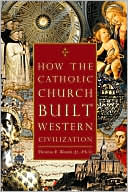From RZIM:
The well-read collection of essays written by C.S. Lewis and compiled posthumously in the book God in the Dock was originally published in England under a different title. The book was titled Undeceptions.
“Undeception” was the word Lewis used to describe a startling experience of awareness--moments when deception is uncovered and the cause is seen clearly from within, moments when blind spots are replaced with reality. He was taken with these awakenings or undeceptions in many of the characters of Jane Austen. In much of Austen's work, he observes, “[T]he undeception...is the very pivot or watershed of the story.”(1)
Lewis would unquestionably state the same of our own stories. “Undeception” was no doubt a word that fittingly described his startling experience of being brought into the kingdom kicking and screaming, the most reluctant convert in all England. It was that experience through which he saw himself, the world, and its Creator for the rest of his life. Encountering God, we start to recognize our own blind spots. “Surely the LORD is in this place, and I was not aware of it” woke Jacob to his own deception (Gen. 28:16). He didn't wake up declaring that the God who was once absent had now appeared. He said, “God was here all along and I was the one who didn’t see it.” A friend of mine refers to pivotal encounters like Jacob’s dream as “thin spots”--moments in life where the nearness of God is nearly palpable. Other theologians describe such encounters as openings or baptisms, windows or transcendence. Still others give testimonies similar to the man born blind in ancient Jerusalem. Forced to explain to the Pharisees the unexplainable moment he had with Jesus, he mustered the only words he could think to describe it: “Only one thing I do know. I was blind but now I see” (John 9:25).
In his book Grace Abounding, John Bunyan describes a day when he was inexplicably released from doubt and despair. While passing through a field, troubled in conscience and fearing that all was not right, the sentence fell upon his soul: “Thy righteousness is in heaven.” (See Psalm 85:11b). Writes Bunyan, “I thought I saw with the eyes of my soul Jesus Christ at God’s right hand. There was my righteousness. Wherever I was, or whatever I was doing, God could not say of me that I lacked his righteousness, for that was ever before Him. Moreover, I saw that it was not my good frame of heart that made my righteousness better, nor my bad frame that made it worse, for my righteousness was Jesus Christ himself.”(2)
Not surprisingly, Bunyan's encounter is one described in a small book recommended by Dallas Willard called Deeper Experiences of Famous Christians by James Lawson. In the book that was for him an experience of undeception, Willard notes the quality that moved him in each account of unmistakable, life-changing clarity. Lawson’s “famous Christians” were not seeking experiences of self-awareness or even experiences with God. They were seeking the Lord, his kingdom, and his holiness, and in seeking found it all.
This is not to be overlooked or seen as easy or even painless. A person that is willing to put even his or her vision of life into God’s hands, watching as He prepares a fearful concoction of spit and mud, is a soul that seeks Him with courage. Self-deception is a difficult thing to own up to, and far too often it is easier to see the deception in others than it is to see in ourselves. The blinders we walk with through life, God in his mercy must remove. Opening our reluctant eyes, the Father shows us with his radiance the darkness we’ve been squinting in, even as He prepares us to see.
In Bunyan and in Lewis, in the lives of Christians throughout history, the defining characteristic of their encounters with God was their willingness (even reluctant willingness) to see the deceptions within themselves and to bring these deceptions back to the feet of the one who made them visible. His love and mercy are to our lives the shining undeceptions that unwearyingly move us to see.
Have any of you ever had one of these "thin spots, windows or undeceptions"? And would you care to share them with us?


No comments:
Post a Comment